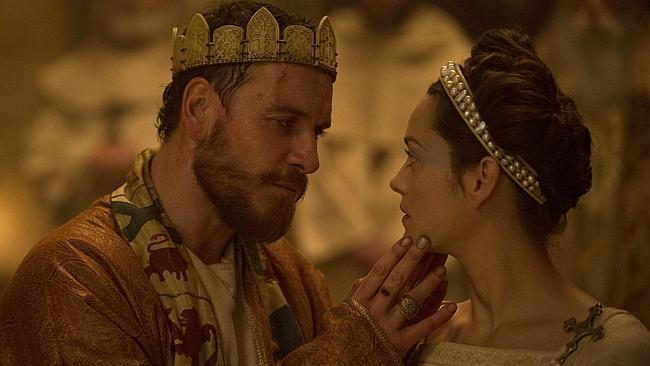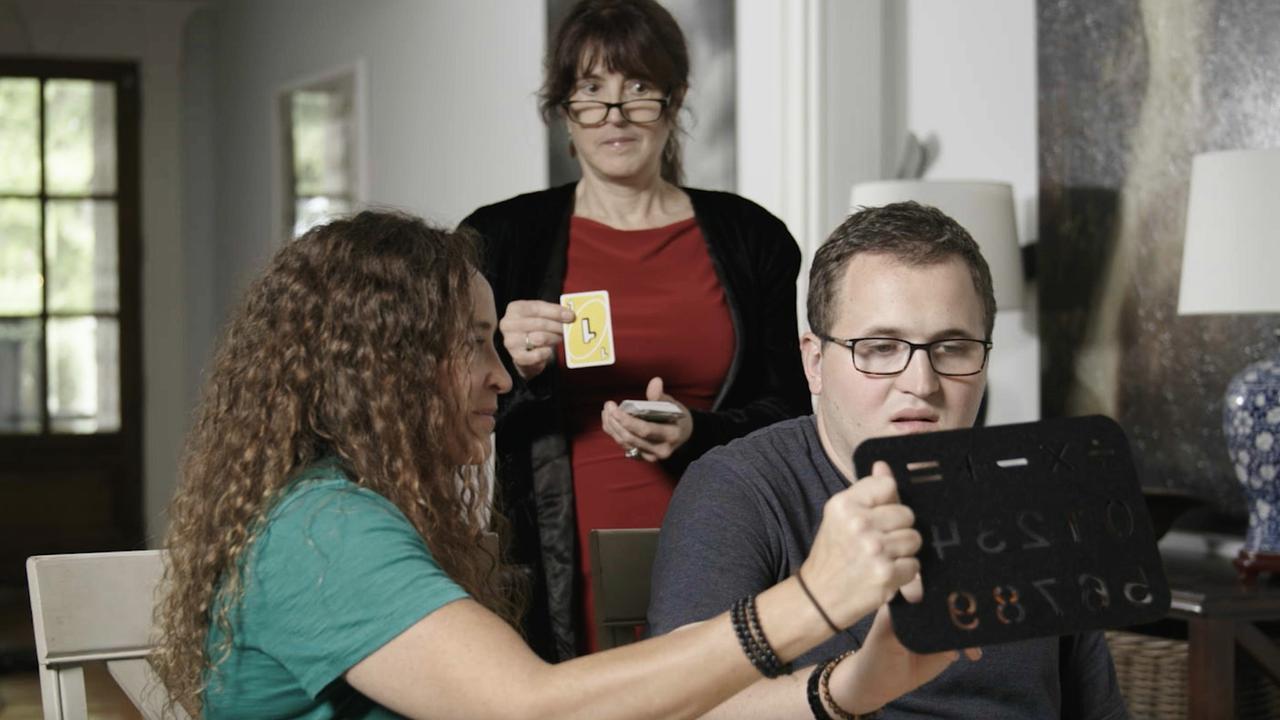Black Mass, Macbeth review: blood, ambition & murder
Johnny Depp makes the role of gangster Whitey Bulger his own in Black Mass, while Michael Fassbender is a fine Macbeth.

Not since Martin Scorsese’s Oscar-winning The Departed nine years ago has there been a gangster movie as good as Stuart Cooper’s Black Mass,so perhaps it’s no coincidence that Cooper’s film is essentially a portrait of James “Whitey” Bulger, boss of South Boston’s Winter Hill gang whose activities formed part of the basis for Scorsese’s film.
What gives Black Mass additional resonance and depth, though, is the examination of the unholy alliance between Bulger and his childhood friend, John Connolly, given the fact Bulger was a ruthless gangster and Connolly an FBI special agent. Outstanding performances from Johnny Depp as Bulger and Joel Edgerton as Connolly form the core of a gripping crime movie made with intelligence and style.
At first sight, Depp is unrecognisable. He looks a little like an older Jack Nicholson, with his drastically receding hairline, his surly, pallid expression and his piercing blue eyes. A great job of makeup is the first thought that comes to you, and, in fact, maybe the makeup is at times a little too obvious; at times it seems that latex takes pride of place over performance, but fortunately Depp — in one of his strongest roles in a long time — soon makes the character of Bulger all his own.
For Irish-Americans reared in South Boston, loyalty is everything; alliances first made in the schoolyard can last a lifetime and deviant behaviour can be overlooked in the name of friendship.
Bulger is first seen in 1975 as a relatively minor criminal, leader of a small gang of tough guys, including Kevin Weeks (Jesse Plemons) and Steve Flemmi (Rory Cochrane), whose efforts to control the streets of their district are being hampered by the presence of the mafia-aligned Angiulo gang. Bulger is devoted to his mother and, indeed, is charming to little old ladies in general and anyone who poses no threat to him. He has a wife (Erica McDermott) and a son he adores, though his idea of paternal advice is characteristically self-serving. “It’s not what you do,” he tells his son, who has been punished for hitting another kid, “it’s where. If nobody sees it, it didn’t happen.”
In an indication of the different directions fate has in store for everyone, Bulger’s brother, Billy (Benedict Cumberbatch), has risen to prominence in the world of politics; Billy is a highly respected state senator with the most impeccable contacts. And Connolly, whose FBI training has eventually brought him back to his home town, is seemingly as far apart as it’s possible to be from Bulger’s seedy and increasingly violent world. He has been assigned to clean up mob activities in Boston, and he sees a way of working secretly alongside his old friend to achieve this. If Bulger can point Connolly in the direction of his rival mafia gang bosses, while receiving tacit FBI immunity for his own nefarious activities, well, that cosy arrangement should benefit everyone — until, of course, it inevitably unravels.
As the violence increases and Bulger becomes increasingly unstable, Connolly is amazingly good at turning a blind eye. One of Bulger’s once trusted lieutenants can receive a handshake, then a bullet in the head; the hapless girlfriend (Juno Temple) of another Bulger confidant may possibly know too much, and knowing too much can quickly get you buried.
The screenplay for the film was written by Mark Mallouk and Jez Butterworth and is based on a book by Boston Globe reporters Dick Lehr and Gerard O’Neill (both of whom have cameos in the film). Cooper, the director, previously made Crazy Heart, which won Jeff Bridges a best actor Oscar in 2009. Cooper is clearly terrifically good with actors, and every member of the large cast here performs strongly.
As for Edgerton, who is on a roll at the moment after the success of his directorial debut, The Gift, his Connolly is an intensely controlled depiction of a man who deceives himself so profoundly than he no longer knows what’s right and what’s wrong. His Boston accent is (I’m assured by those who know these things) impeccable, and the scene in which he invites Bulger home to dinner and his wife (Julianne Nicholson) is too terrified to join them for the meal is one of the finest in the movie.
The violence in Black Mass is brutal but brief. Like Scorsese at his best, Cooper knows the value of the sudden, unexpected flash of brutality, but he’s also skilled at creating suspense out of scenes where we, the audience, know something bad is about to happen. On almost every level, this is a satisfying film and also a disturbing portrait of the way the activities of criminals and law enforcement agencies can sometimes blend and merge.
Although he can hardly rival Bulger in terms of violence, Macbeth’s bloody career can be, and has been, employed as the basis for a contemporary gangster film (Ken Hughes’s Joe Macbeth in 1955 and Geoffrey Wright’s Macbeth in 2006 are two examples.) The Scottish play also has been filmed successfully by Orson Welles and Roman Polanski, so Australian director Justin Kurzel was facing a considerable challenge in revisualising this timeless drama of ambition, jealousy and murder.
Kurzel’s only other feature, Snowtown, was the grim, disturbing story of the activities of a South Australian serial killer. The director is clearly drawn to bleak portraits of violent men, so perhaps attempting Macbeth was a natural fit for him. And for the most part he’s successful in re-imagining the drama. Although Shakespeare’s text has been truncated by screenwriters Todd Louiso, Michael Lesslie and Jacob Koskoff, the familiar narrative unfolds with commendable clarity and the use of rugged locations in Scotland adds immeasurably to audience appreciation of the primitive world in which these clansmen fought and schemed and died. The photography, by another Australian, Adam Arkapaw, is, however, strangely schizophrenic; in some scenes the desolate grandeur of the misty landscape plays an evocative role in the tragedy, while other scenes — especially the key sequence in which Macduff (Sean Harris) is made aware of the terrible deaths of his wife (Elizabeth Debicki) and children — are utterly ruined by the intrusively wobbly hand-held camerawork that seems perversely eager to distract from the actors and the text.
Michael Fassbender is a fine Macbeth. When the film premiered earlier this year at Cannes there were complaints that his dialogue was difficult to comprehend, but I had no such difficulty at the screening I attended. Equally fine is Marion Cotillard as the scheming Lady Macbeth, whose reading of the lines (“Who would have thought the old man had so much blood in him?”) is chillingly good.
Yet there’s something unsatisfying about this Macbeth. Perhaps it’s a difficult play because the characters are essentially so unsympathetic. Yet Welles and Polanski were able to tap into the tragedy of the man who would be king, and tragic stature is something that this version, for all its attributes, never quite attains.
Black Mass(MA15+)
4 stars
National release
Macbeth(MA15+)
2.5 stars
National release



